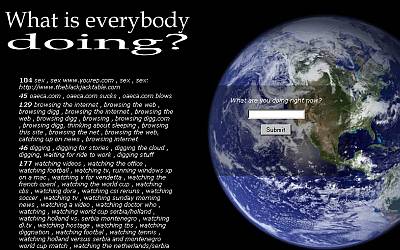What is the tendency of "article title to be shared" that was clarified by analyzing 100 million articles?

ByMarius B
In the Internet world where innumerable articles are posted, it is important to attract readers' attention and raise the feeling of "wanting to read". Furthermore, in recent years "How to be shared by SNS" is an important point in raising PV, but the SEO tool "Buzzsumo" which can analyze the spreading situation of contents at SNS is a hundred million We analyze headlines and share situations of articles, and we clarify what kind of article title is effective in SNS.
We Analyzed 100 Million Headlines. Here's What We Learned (New Research)
http://buzzsumo.com/blog/most-shared-headlines-study/
◆ phrase "buzz" on SNS
Buzzsumo reveals the actual state of articles that are liked, shared, and commented on Facebook based on 100 million articles released from 1 March to 10 May 2016 . Among them, the phrase most included in the article engaged on Facebook was "will make you".

"Will make you" is "24 Pictures That Will Make You Feel Better About The World" and "This This Airline Did for Its Passengers Will Make You Tear Up - So Heartwarming It is used as a title such as "This airplane company gives you tears and gives you a warm feeling" that the airplane company has given to passengers "has become the title that makes the reader feel like giving something to the reader. That is, the reader is expected to expect some remuneration to make the impression "to have some influence by reading this article", and the strength of its effect is the second place "this is why The reason is clearly distinguished by double score.
Also, it seems that how to give a title appealing to readers' emotions was also effective on Facebook. "Tears of joy" and "Make you cry" "Give you goosebumps" "Is too cute (too cute ◯◯)" "Shocked to see (Shocking to see Image) ", etc., which directly predict changes in feelings after browsing seems to be most attracted to attention. "Can not stop laughing" (laughing does not stop) may be similar to how to put headlines like "[laughing]" which is often seen in Japanese titles.
Likewise, the title that appeals to the curiosity of the reader and the feelings that he / she wants to see is also effective. "What happened next (what will happen next)", "Twitter reacts to (Twitter reaction to)" "Are freaking out (horror of ~)" Top x songs (Top 10 songs) A title that makes me think that "What?" Is effective.
◆ Conversely phrases with little effect
Meanwhile, the article that was not interested on Facebook was most used as "control of your". The phrases such as "your own business" "work for you" are lined up after the next point. At first glance it is a phrase that the reader is likely to benefit from, but it may be the reason why it is avoided to feel a bit hard.

◆ First phrase and last phrase of the most frequent article title
The following table summarizes what kind of phrase the titles that invite people's interest begin. "X reasons why" (X reasons for ~) is the most effective, then "X things you (X things you do)" "This is what" You can see that titles directly entering the sword are preferred.

Also, there was also a tendency towards the end of the article title. "... the world (of the world)" "X years (X year)" "... goes viral (buzzed ◯◯)" "... to know (◯◯ to know)" and so on It is ranked in.

Then, when analyzing the most used word at the head of the article title in units of one word, it turned out that "This (this)" was the most numerous. "Trump (trump)" is ranked in 2nd place and this should definitely be an article about President Trump. It is also highlighting how it attracts attention in the United States like this.

◆ 2 phrase fixed phrases
Buzzsumo also analyzes how regular phrases consisting of two words are used. That's were many in the and "will make you (you ◯◯ to make ~ a)," "make you" that is included in the title of, "this is why (this is reason to ◯◯)", "is why that is used in such It was said that it was.
In addition, phrases such as "goes viral" and "most beautiful" appear frequently.
◆ Strength of titles including figures and the power of "10"
There are many cases that some number is embedded in the title of the article being diffused. This is the title such as "5 ways to make you ◯◯" and "top 3 of camping equipment that is on sale at Amazon", but among them the fact that the number "10" was the most popular is below It is clear from the graph. From the second place onwards, it is interesting that it seems that Kiri is going to be good in 5 increments, such as "5" "15" "20", so the fourth place "7" is 7 of "Lucky 7" It seems that they are ranked in.

◆ The number of words to include in the title highlighted
Analysis of the number of words included in the title of the hit article shows that 10 words to 20 words are the most effective as shown in the following graph and that titles composed of 15 words were most attracted to people's attention I understand.

Even if you do the same analysis by the number of characters, you can also see that there is a character number of "moderately" as well. It seems that the number of the most frequently shared characters was around 90 from 100 characters.

◆ Meanwhile, the phrase included in the article title that called for an echo on Twitter?
Until now, it analyzed the reaction on Facebook, but when I analyzed the reaction on Twitter, it was "this is what (this is ◯◯)" which was mostly included in the title of the diffused article Phrases such as "for first time (first time ~ done ◯◯)" "things to know (◯◯ to know)". Although the situation is somewhat different from Facebook, in the fourth place is "will make you", and I heard that the articles that are likely to gain merit are gathering interest I know.

◆ For business oriented articles
Although the situation at SNS has become clearer, the situation will change if it is a business-oriented field. So, Buzzsumo analyzed trends by analyzing 500,000 business articles. Then, it is highlighting that the following phrases appealed effectively. Let's pretend that industry situation and insight are included, such as "The age of", "The impact of (the impact given by"), "The rise of (rise of ~)" The title seems to be effective for business.

◆ What are the points to think about when attaching article titles
Buzzsumo who finished the analysis says that the article title should be considered based on the following points.
· Why does the reader want to see your articles?
· Can you ensure the impact given to the reader?
· Do you include elements that appeal to feelings, especially when sending out for Facebook?
· Do you use topics on trends? In that case, is it included in the article title?
· Can you change the contents of articles to quiz format?
· Is it an article that explains something or shows answers?
· What kind of readers are you targeting? Is the article title appealing to its readers?
· Is it likely to obtain further response by getting sympathy of the target layer or making it a title that is likely to bring refutation?
· Do you keep the word number of the title in 12 to 18 words?
In the case of business-oriented articles, of course, article titles that make the reader's merit feelable even at SNS are well supported. In other words, since the reader is expecting to be able to obtain some merit and knowledge when reading an article, it tends to be attracted to the title that will satisfy the desire, Whether the title of the article follows it or even if the content of the article itself is such that it can answer that desire, it should lead to "buzz" articles.
Related Posts:
in Note, Posted by darkhorse_log







